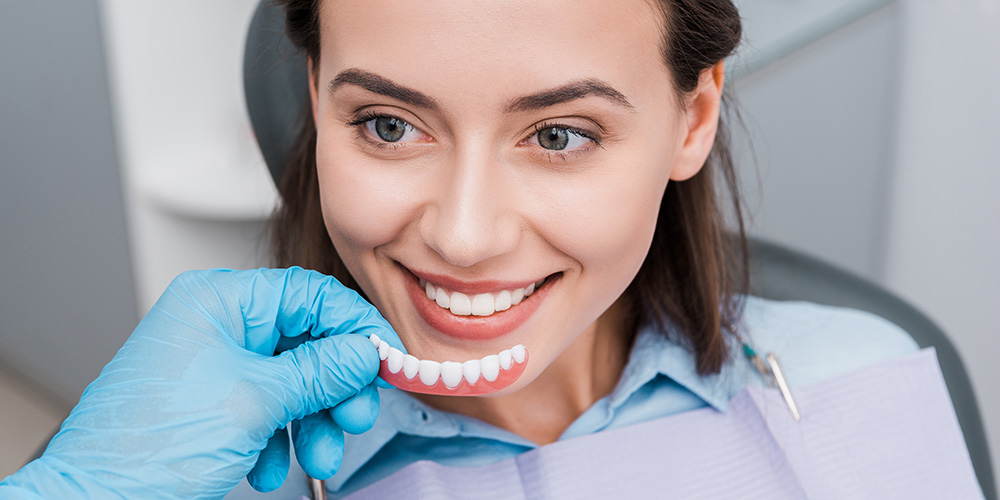
Dentures are worn to replace your natural teeth. They are usually made from lifelike resin teeth bonded to a plastic base. You will either have been fitted with a complete denture to replace all your teeth, or a partial denture. Partial dentures are usually held in place by clasps or metal clips, which fit around some of your remaining teeth.
With today's technology dentures can be made to look so natural that people can't tell who's wearing them. Your dentist has custom made your dentures to fit your mouth, so they'll take on the character of your original teeth, leaving your appearance the same as before. The colour of the teeth is carefully selected, either to match your remaining teeth, or simply to look as natural as possible.
While your dentures have been custom made, they may initially feel a little strange, or even rather a mouthful, however, rest assured that they only feel that way; you yourself will not look any different. You may also find you produce more saliva than normal but this should settle down soon enough. The time it takes to adjust to wearing new dentures is different for everyone, but you will soon learn how to eat, talk and smile as you would with natural teeth.
Denture Fixatives
However well fitting your dentist has managed to make your dentures, they can never provide the same, strong biting surface as natural teeth. Using a denture fixative should dispel many of the doubts and fears you may have. Even if you have well fitting dentures a fixative will help in many ways, whether your dentures have just been fitted or you have had them a long time.
Denture fixatives work by reacting with saliva in the mouth to develop adhesive properties. The ingredients then work together to hold the denture in place more firmly and reduce the wobble, so you can enjoy eating apples, crusty bread and other foods that you may otherwise avoid. A fixative can give you more confidence in public and social situations. You will feel better about eating, talking and even playing sports, especially swimming, which puts the suction of complete dentures at risk when water gets into the mouth.
How do I take care of my dentures?
Dentures need cleaning morning and night in the same way as your natural teeth. If you follow this same routine, you can not go far wrong. Pay particular attention to your gums, and any remaining teeth where they meet your dentures as plaque and debris builds up in these areas.
When cleaning your dentures always remove them from your mouth beforehand to clean them properly. As a general guide remember that dentures are fragile and need to be handled carefully when out of the mouth. Cleaning them with a brush should be done over a basin filled with warm water, so that if you drop them the water will cushion the fall. The main purpose of cleaning is to remove the dental plaque, which builds up on dentures as well as teeth and can harm the gums. Brushing a denture will also remove any food particles stuck to it. The highly polished, easily cleaned new surface of dentures can be damaged by ordinary toothpastes, which can be too abrasive. There are special gentle denture cleaning toothpastes available which, will leave your dentures fresh and minty like a normal toothpaste but will not damage the surface. This brushing helps remove the plaque and debris, whereas soaking alone may not. If you have partial dentures, you should pay particular attention to cleaning your remaining teeth and follow a good oral hygiene routine.
